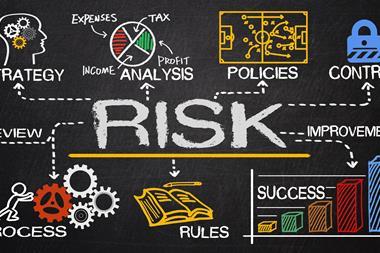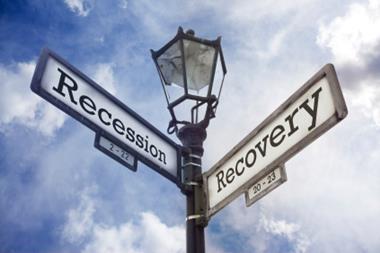Economic concerns top Aviva’s risk index, as net business confidence in the UK economy plummets
An onslaught of interconnected economic risks, from labour shortages to supply chain disruption, have pushed UK business leaders to the brink as economic concerns top the list of boardroom worries, Aviva’s third annual Risk Insights Report shows.
The ongoing cost-of-living crisis is weighing on businesses’ confidence. Two-thirds (63%) of business leaders said they are ‘worried’ about the impact of the cost of living on their business, while 29% said the crisis will have a ‘serious’ impact on their business.
Six of the top 10 risks business leaders are concerned about are related to the economy. In addition to economic concerns (#1), business leaders told Aviva that labour shortages (#2), continued uncertainty over Brexit (#3), supply chain disruption (#5), interruption to business operations (#6), and market developments (#9) are also pressing.
Adam Winslow, CEO of Aviva UK & Ireland General Insurance, said: “During 2022 cost pressures evolved into a full-blown cost-of-living crisis across the UK economy, driven by systemic inflation, the impact of the war in Ukraine and enduring post-Brexit and post-Covid pressures.
“While the risk profile for many companies has altered dramatically, many businesses have not taken action to ensure their insurance is relevant to how they operate today. Our review of policies, demonstrating that 50% of businesses are underinsured, is concerning.”
Reduced insurance spend
Amid widespread economic pressures and concerns, a fifth of UK businesses (21%) have reduced, or considered reducing, their insurance cover over the last year.
High inflation, supply chain disruption and labour shortages are a;sp impacting the amount businesses need to insure themselves for, as well as the duration of cover for business interruption insurance to help protect them in the event of a major loss, warns the insurer.
Supply chain strain
Forty-five per cent of companies reported a supply chain impact on their business; 38% have experienced significantly higher supply costs as a result of systemic inflation pressures, and 59% of businesses anticipated further increases in supply chain costs over the coming year.
More than one in 10 (16%) companies have suffered total supplier failure in the last 12 months. More than half (54%) of businesses have made changes to their supply chains, from cost reviews to finding alternative suppliers due to disruption or failure.
Skills shortages and fierce competition for talent is driving a race to the top
Six in 10 (58%) companies have struggled to attract new employees and 57% have struggled to keep existing staff.
Businesses’ attempts to resolve labour and skills shortages have evolved into a ‘race for the top’ in employment benefit and recruitment costs across the UK.
Over a quarter of companies said they were increasing pay to attract or retain staff (31% to attract and 25% to retain), further impacting an already-squeezed bottom line. One in eight (13%) businesses significantly increased employee benefits to attract new staff.
Energy cost pressures
Many UK companies said they were taking matters into their own hands and implementing measures to reduce energy costs. Two-thirds (65%) of businesses have taken at least one action to save on energy costs.
Financial pressures and ongoing uncertainty have prompted half (51%) of businesses to gain some control over their situation by implementing energy-saving initiatives; three in 10 (29%) have invested to improve energy efficiency; and a fifth (19%) have installed their own renewable energy generation capability.
Climate change not seen as top risk by businesses
One risk, however, is noticeable in its absence. Despite a year of extreme weather around the globe, climate change failed to appear in the top 10 risks table for the third year in a row.
While the climate crisis may not feel as pressing a risk as the economic concerns highlighted in the report, businesses need to have a plan to reach net zero by 2050, in line with the UK’s climate ambitions.
The report surveyed senior leaders from more than 1,200 businesses across the UK and lifts the lid on the most pressing risks business leaders are concerned about. These include supply chain pressures, labour shortages, the cost-of-living crisis, and energy costs.
The report also tracks businesses’ confidence in the UK economy, which has plummeted to -50 from +5 in Aviva’s previous report. Despite this gloomy outlook, businesses were markedly more optimistic about their own prospects, with 49% saying they were confident about their future.




















No comments yet